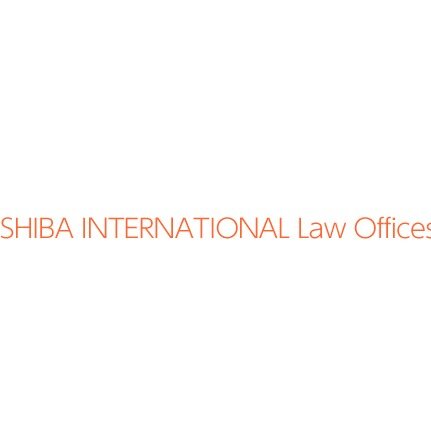Best Arrests & Searches Lawyers in Tokyo
Share your needs with us, get contacted by law firms.
Free. Takes 2 min.
List of the best lawyers in Tokyo, Japan
About Arrests & Searches Law in Tokyo, Japan
Under Japanese law, arrests and searches are strictly regulated to protect individual rights while ensuring law enforcement agencies can perform their duties effectively. In Tokyo, as in the rest of Japan, the Criminal Procedure Code dictates how and when police officers can arrest individuals and conduct searches. The code requires that arrests are generally made under a warrant issued by a judge, except in specific circumstances such as when a suspect is caught in the act. Similarly, searches usually need judicial authorization unless exigent conditions exist.
Why You May Need a Lawyer
Legal representation is strongly advised if you are subject to an arrest or search in Tokyo. Lawyers can guide you through the complexities of Japanese criminal law, ensure that your rights are upheld, and provide defense if charges are brought against you. Common situations where legal help is required include being arrested for a crime, being subjected to a search of one's property without clear justification, or experiencing potential rights violations during the arrest or search process.
Local Laws Overview
In Tokyo, as in the whole of Japan, the powers of police to arrest and search are mainly outlined in the Code of Criminal Procedure. Law enforcement needs an arrest warrant to detain a person unless they are apprehended during or immediately after committing an offence. Searches of individuals and premises generally require a search warrant, though there are exceptions, such as searching a suspect upon arrest or in emergency situations. The Constitution of Japan also provides for the right to remain silent and the right to counsel, which are vital to be aware of during arrests and searches.
Frequently Asked Questions
What rights do I have if I am arrested in Tokyo?
Upon arrest, you have the right to remain silent, the right to counsel, the right to be informed of the charges against you, and the right to contact your embassy if you are a foreign national.
Can police search my home without a warrant in Tokyo?
Generally, police need a search warrant to search your home. However, there are exceptions, such as when chasing a suspect or with immediate danger to life or property.
How long can I be detained after an arrest in Tokyo?
Following an arrest, police can detain you for up to 72 hours. After that, prosecutors must decide whether to release you or bring charges and request further detention from a judge.
Can I refuse to comply with a search if I believe it is unjustified?
You may express your belief that a search is unjustified, but physically resisting law enforcement is not advisable. Instead, document the incident and consult with a lawyer as soon as possible.
Do I need a lawyer present during questioning after an arrest?
It is within your rights to have a lawyer present during questioning. Legal representation is recommended to protect your rights.
Are there language assistance services available if I do not speak Japanese?
Yes, there are language assistance services available for those who do not speak Japanese. Make sure to request for an interpreter immediately upon being detained.
Can I be searched on the street by police without any reason?
Police can stop and question individuals on the street, but they typically need a legitimate reason to perform a body search. If you're searched without cause, this may be a violation of your rights.
What should I do if my rights were violated during an arrest or search?
If you believe your rights were violated, remember the details of the incident and contact a lawyer immediately. Your attorney can advise on whether your rights were breached and the next steps to take.
Is there a difference in the arrest and search laws for foreigners in Tokyo?
The laws governing arrest and search apply to both nationals and foreigners. However, foreigners have the additional right to contact their embassy or consulate.
Can minors be subjected to arrests and searches in Tokyo?
Yes, minors can be subjected to arrests and searches, but there are specific legal protections in place to ensure they are treated appropriately according to their age and legal status.
Additional Resources
For those seeking legal advice on arrests and searches in Tokyo, it's important to reach out to the Tokyo Public Law Office and the Japan Federation of Bar Associations. These organizations can provide referrals to criminal defense lawyers and may offer legal aid services. The Embassy or Consulate of your respective country in Japan can also be a valuable resource, particularly for foreign nationals facing legal issues.
Next Steps
If you need legal assistance in regards to an arrest or search in Tokyo, the first step is to consult with a qualified criminal defense lawyer who is experienced in Japanese law. You can reach out to legal aid societies or your country's embassy for referrals. It is also critical to document any incidents thoroughly and avoid signing any documents or making statements without a lawyer present. Lastly, familiarize yourself with your rights under Japanese law to ensure they are protected at every stage of the process.
Lawzana helps you find the best lawyers and law firms in Tokyo through a curated and pre-screened list of qualified legal professionals. Our platform offers rankings and detailed profiles of attorneys and law firms, allowing you to compare based on practice areas, including Arrests & Searches, experience, and client feedback.
Each profile includes a description of the firm's areas of practice, client reviews, team members and partners, year of establishment, spoken languages, office locations, contact information, social media presence, and any published articles or resources. Most firms on our platform speak English and are experienced in both local and international legal matters.
Get a quote from top-rated law firms in Tokyo, Japan — quickly, securely, and without unnecessary hassle.
Disclaimer:
The information provided on this page is for general informational purposes only and does not constitute legal advice. While we strive to ensure the accuracy and relevance of the content, legal information may change over time, and interpretations of the law can vary. You should always consult with a qualified legal professional for advice specific to your situation.
We disclaim all liability for actions taken or not taken based on the content of this page. If you believe any information is incorrect or outdated, please contact us, and we will review and update it where appropriate.









